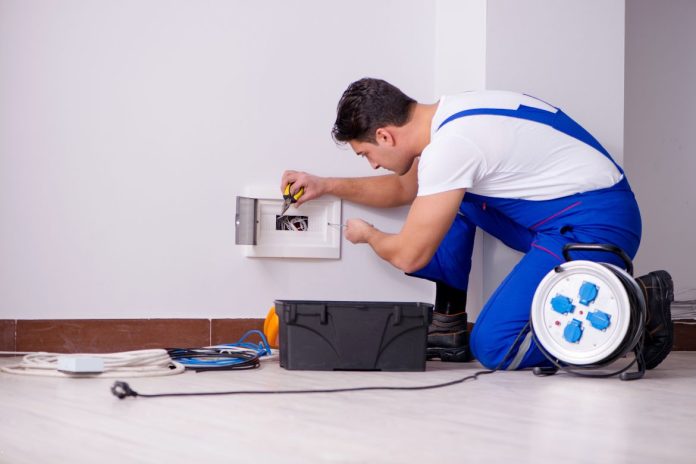When renovating your home, electrical safety should be your top priority. Improper electrical work due to damaged wiring, overloaded circuits, faulty installations, or outdated components can lead to devastating house fires, dangerous shock hazards, and other potentially life-threatening situations.
Continue reading this essential guide to discover why performing a thorough electrical safety check is crucial before, during, and after any home renovation project.
Why Consistent Electrical Inspections Matter
Electrical faults and outdated wiring are responsible for an extensive number of damaging house fires globally each year. Electrical fires typically ignite more frequently during home renovation projects as unqualified personnel disrupt or alter electrical systems in unsafe ways.
Common universal causes of dangerous electrical fires across regions worldwide include damaged, faulty wiring, overloaded or undersized circuits, improper installations that violate local safety codes, and aging electrical components needing replacement. On your home renovations, you can prevent electrical disasters in your home upgrade by:
- Utilizing Licensed Electricians – Have certified electrical pros handle all wiring, lighting, appliance, and outlet work rather than doing it yourself. They can identify safety issues early on.
- Frequent Hazard Inspections – Check for overloaded circuits, exposed wires, faulty appliances, and other red flags throughout your renovation. Finding and fixing problems ahead of time is key for safety.
- Adhering to Codes – Follow all electrical, fire, and building codes and secure the necessary permits. This ensures your remodel meets rigorous official safety standards.
Spotting Electrical Risks Before Starting Renovations
Before beginning demolition or construction, take time to inspect your electrical systems thoroughly:
- Breaker Box – Check for adequate capacity, appropriately sized wires, working breakers, and no signs of overheating or damage requiring upgrades.
- Wiring – Inspect all wires for damage, corrosion, cracks, wear, and proper connections. Also, ensure correct load capacity for outlet and lighting needs after renovation.
- Circuits – Detect circuits nearing max capacity and plan to redistribute appliances/devices after remodeling to prevent overloads.
- Appliances – Test all electrical appliances involved in the remodel for faults, outdated components that need upgrades, or other safety hazards.
Performing Ongoing, Diligent Electrical Inspections During Remodeling
Vigilantly check for new electrical hazards and issues during your renovation as work progresses. Safety risks can be introduced at any stage due to accidents, undiscovered defects, or dangerous shortcuts. It is recommended that systems and work are consistently inspected.
- Demolition Stage
Carefully check for hidden wires in walls, ceilings, and floors before demolition. Older homes often have wires encased in drywall. Inspect carefully when wires emerge. Immediately cap exposed wires properly to insulate copper ends completely. Loose wires can spark fires if touched accidentally. Capping all wiring prevents electrical fire hazards.
- New Wiring and Fixture Installation Stage
Closely oversee all new wiring installs by your electrician to ensure proper building code compliance and correct functioning. Don’t allow insulation or drywall until everything electrical is inspected for safety.
- Insulation Stage
Never cover electrical boxes, wires, or components with insulation, which can cause hazardous overheating and fires over time.
Final Electrical Fixture and Appliance Installations Stage
Meticulously inspect all final electrical installs for issues before connecting to power. Check for loose connections, faulty wiring, and code violations. Fix any problems now rather than after.
Diligent electrical inspection protocols tailored for each remodeling stage prevent disasters. Don’t cut corners on electrical safety.
Leveraging Professional Electricians’ Expertise
While diligent personal checks are crucial, partnering with professional electricians for renovations is vital:
- Hiring Certified Electricians – Don’t take chances by handling complicated electrical work yourself. Employ reputable, fully licensed, and insured electricians only.
- In-depth Safety Inspections – Experienced electricians can catch safety issues you might miss. Have them thoroughly inspect electrical systems before, during, and after the remodel.
- Permit Expertise – Determine if your renovation project requires electrical permits and lean on electricians to handle it properly.
- Post-Project Safety Certificates – Request safety certificates from electricians confirming all new electrical work has been correctly and safely installed.
Contact a Licensed Electrician Before Your Next Remodel
When taking on any home renovation project, ensuring electrical safety should be a critical priority throughout the preparation, construction, and finishing stages. Consistently inspecting electrical systems, leveraging licensed electricians, and adhering to codes allow you to proactively catch risks early.
Investing this diligence on the front end saves lives, prevents hazardous fires, and lets you enjoy your upgraded home for years with complete peace of mind. Be sure to perform a thorough electrical safety check before, during, and after renovations. Contact certified electrical contractors to evaluate your plans and electrical needs for your next remodeling project.








